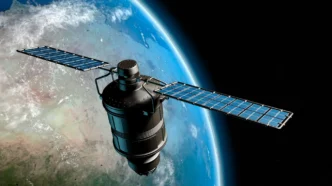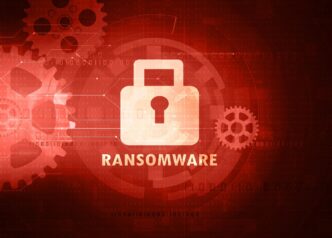Space may seem like the final frontier, but it’s quickly becoming the newest battleground in cybersecurity. Satellites and other space assets face growing cyber threats — and even amateur hackers could pose a serious risk.
That was the key message from Barbara Grofe, a space asset security architect at Spartan Corp., during her presentation at RSAC Conference 2025. Her session, titled “Space Assets Resiliency: Protecting Against Current Attack Techniques,” painted a stark picture of how vulnerable space systems are to cyberattacks.
Despite being hundreds of miles above Earth, satellites are not immune to hacking. Grofe warned that every part of a satellite — from subsystems to onboard computers — is a potential entry point for cyber attackers.
Space-Based Systems: High Stakes, Low Protection
Satellites support vital sectors such as navigation, communications, aerospace, and defense. Grofe stressed that their critical role in modern life makes them prime targets for threat actors. She debunked the myth that satellites are safe just because they orbit above Earth, far from terrestrial networks.
In fact, she highlighted a real-world example: in 2022, researchers at Thales Alenia Space showed how they could alter a European Space Agency satellite’s camera and orbit. More alarmingly, she pointed to a Russian cyberattack on U.S.-based Viasat, which disrupted Ukrainian military communications at the onset of the war. That incident marked a dangerous escalation in the use of cyberwarfare in space.
Grofe warned that even “script kiddies” — inexperienced hackers — can now access cheap tools and online resources to launch attacks on satellites. “You can find all these types of attacks on GitHub,” she said. “It’s crazy. You can create your own equipment, and it’s so cheap.”
The imbalance is striking: for as little as $10, someone could eavesdrop on a satellite worth over $100 million.
No Governance, No Attribution: A Recipe for Chaos
Adding to the problem, space is contested and lacks clear governance. Nations like the U.S., China, Russia, India, and North Korea are all active in space, but no single set of rules exists. “We don’t have a good governance framework,” Grofe said. “There are some accords, but nothing concrete.”
She also emphasized that attribution — the ability to identify who launched an attack — is harder in space. Telemetry, the key data used to track and diagnose issues, is often unreliable. Without international standards or enforcement, it’s difficult to prove wrongdoing or respond appropriately.
This lack of accountability makes space asset cyber threats even more dangerous. If a high-energy space laser is hacked, it might be nearly impossible to tell who did it or how it happened.
Still, Grofe remains cautiously optimistic. When asked if declining government cybersecurity budgets might hurt space defense, she replied, “I don’t think that’s going to get cut.” She pointed out that the Ukraine war proved how crucial commercial satellite operations are in modern warfare.
Lessons for Earth-Based Defenders
Even if your organization doesn’t deal with satellites or space tech, Grofe believes her message applies to everyone in cybersecurity. Her advice?
- Build stronger vulnerability management processes.
- Expand access to relevant threat intelligence.
- Conduct thorough cybersecurity architecture reviews.
- Use machine learning on closed datasets to protect critical assets.
Grofe emphasized that defending space assets is not just a niche issue — it affects everyday life. From streaming video to GPS and banking, many services rely on satellites.
Her global travels over the past five years have centered on spreading this message: “Wake up.” Despite growing risks, she said, “People still think it’s the ultimate air gap. They don’t know their daily lives depend on it.”
As cybercriminals become more creative and the barriers to entry continue to drop, securing space assets is no longer optional. It’s a shared responsibility — one that starts with awareness.













